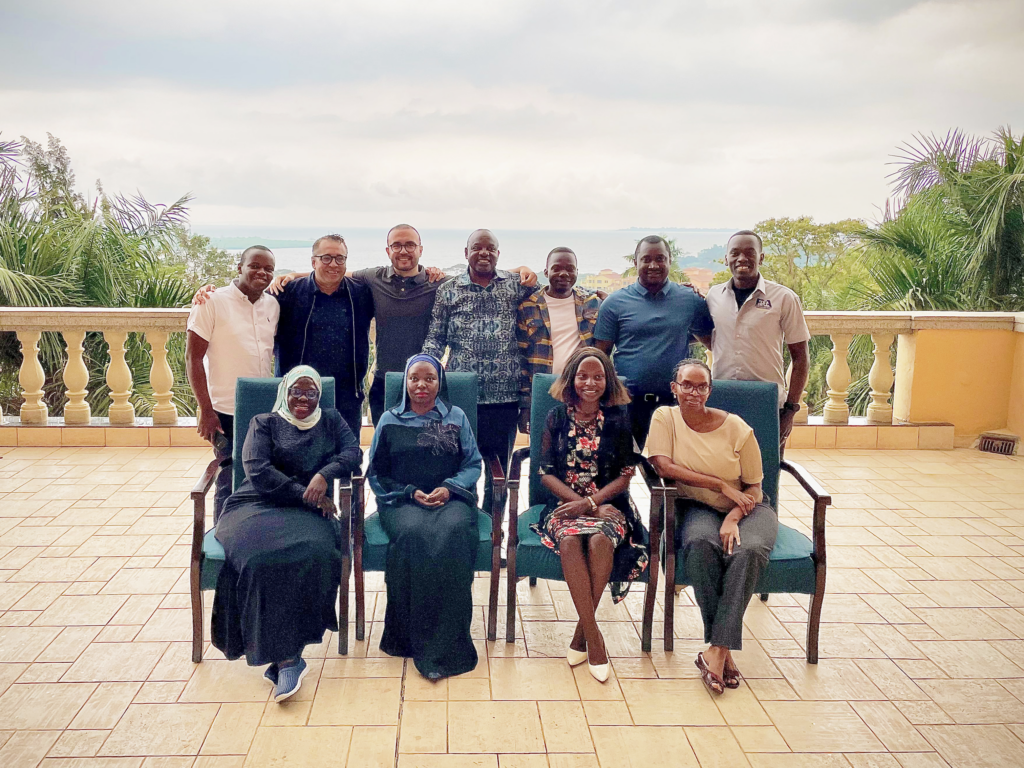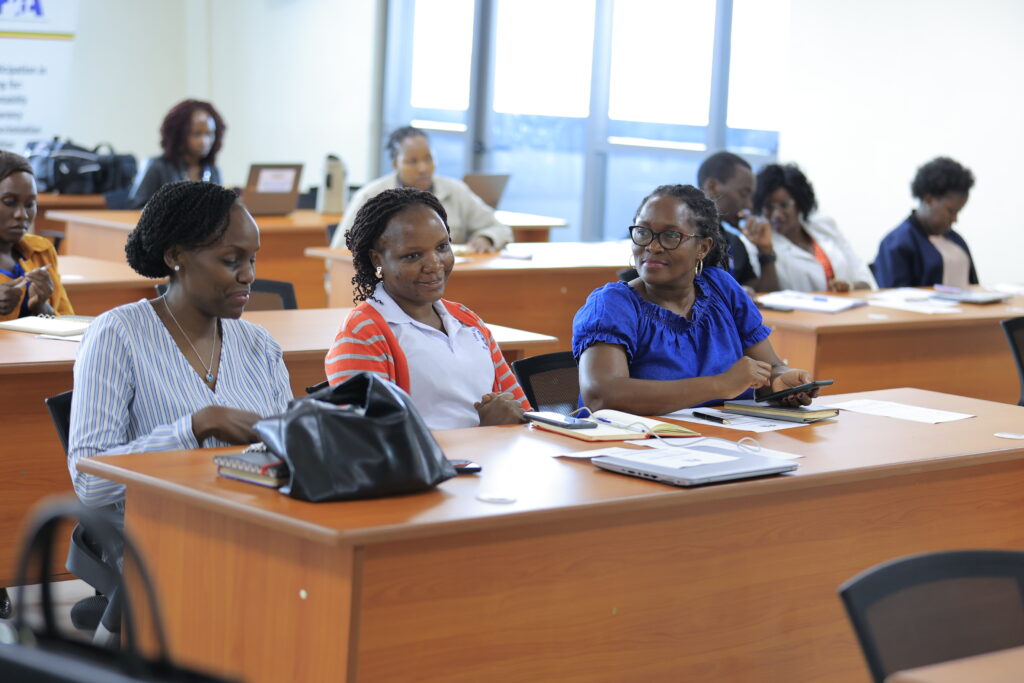Empowering women businesses in Uganda through contracts

Summary: Women-owned and led businesses in Uganda receive just 1% of government contracts. To improve this, government officials and civil society leaders launched a systemic reform designed to change the legal framework, build entrepreneur capacity, improve data, and advocate for greater awareness of the problem and interventions. Now government officials have more regulatory tools and data capacity, almost 130 women-owned and led businesses are better equipped to participate in public procurement, and for the first time, four major Ugandan governmental entities can calculate robust participation metrics to understand if their inclusion efforts are working.
Public contracts are big business in Uganda, with 60% of the government’s expenditure going towards procurement. But right now, women-owned and led businesses are being left behind. Research sponsored by IDRC’s Growth and Economic Opportunities for Women – East Africa, found that just 1% of Uganda’s government contracts go to women entrepreneurs, although women-owned and led businesses are estimated to account for nearly 40% of businesses in the country.
There are many reasons for this gap. Business owners often struggle to learn about government contracting opportunities, and even if entrepreneurs do find them, capacity challenges and stringent financial requirements can get in the way of submitting a bid. In a recent capacity-building session held by the Africa Freedom of Information Centre (AFIC), a female entrepreneur noted that many women-owned and led businesses have had to form groups to bid for contracts and end up fighting over the money, while the project suffers.
Frontline government officials are often unaware of the specific challenges that women-owned and led businesses face, as well as what legal frameworks the government can leverage to improve outcomes.
Poor quality public data adds yet another barrier. A lack of good data means that it’s hard for people inside and outside government to really understand what is going on, track the progress of inclusion efforts, and hold the government accountable to its commitments to increase gender inclusion.
Open contracting approach

Both the Ugandan government and civil society leaders see a big opportunity to bridge the gap between aspirational gender inclusion targets and practice. In 2023, the Public Procurement and Disposal of Public Assets Authority (PPDA) and AFIC came together as one team to participate in Lift, OCP’s competitive impact accelerator program.
Tackling a systemic challenge like gender inclusion in public contracts requires a systemic solution. Over the course of the 18-month Lift program, the Uganda Lift team pursued four critical open contracting tactics to lay the groundwork for this shift:
Strengthen legal regulations: The PPDA issued new, actionable guidelines to make it easier for procurement entities to promote working with women-owned and led businesses, as well as other disadvantaged groups such as youth and persons with disabilities. New legal regulations make reporting on women-owned and led business participation mandatory.
The new legal framework also addresses important barriers, such as reduced bidding times and simplified bidding procedures for certain businesses under Uganda’s “reservation scheme”. The Procuring and Disposal Entities (PDEs) no longer require women groups to provide bidding fees to participate, bid security, turnover exceeding half the estimated value of the projects, and experience exceeding one substantially completed contract for works projects.
Improve data and digitalization: For the first time, the government is systematically collecting information on women-owned and led businesses winning public contracts.
“Before, we would look at who has won the contract and just add the name of the provider. But now we want to know who the provider is. Is it a woman-owned enterprise or a male-owned?” commented Benson Turamye, Executive Director, PPDA Uganda.
This effort required updating the data collection templates, training frontline staff on how to use the templates, as well as revising the Government Procurement Portal (GPP) to collect gender-disaggregated data. The team also created a baseline report on gender-disaggregated data for four pilot entities, which will be used to gauge progress moving forward.

Build entrepreneur capacity: Based on barriers identified in our research, the team conducted four targeted training sessions for almost 130 women-led businesses to equip them with the skills needed to successfully navigate the procurement process.
“We acquired a lot of knowledge from the training delivered by AFIC,” said Sandra Namuwaya, Uganda Women Entrepreneurs Association Limited (UWEAL)/ Woman in Business, Kampala. “We also gained skills that have helped us apply on PPDA platforms, given that the chances of getting opportunities have increased for women.”
I didn’t know what e-GP is all about until this session. Thanks to PPDA, AFIC and the organizers.
Advocacy: The team built awareness and buy-in for their efforts with a public campaign and direct outreach to key stakeholder groups, including leaders of the pilot agencies who are implementing the new efforts, women’s business associations, and high-level international stakeholders that seek to promote transparency and accountability in public procurement.
Results and next steps

“For me, it used to be a mystery to participate in procurement but after being trained, I am able to say that I want to actually try it,” commented workshop participant Doreen Nafula. “I am going to go forward to PPDA to find out what the requirements are and what I need to do.”
Change is already visible. The team has focused much of their data and change management work on four pilot entities, to increase the number of public contracts awarded to women-owned and led businesses by at least 5% within these organizations. The entities include Kampala Capital City Authority, Wakiso District LG, Uganda Electricity Generation Company Limited, and Mbarara City LG.
Thanks to their work with Lift, these entities now have baseline metrics, and greater technical capacity to conduct data collection, cleaning and analysis. This will help the entities understand if their approaches are helping to achieve their 5% goal, as well as support long-term program sustainability and help scale up the work in the future to other places.
With new legal regulations, training, and baseline data in place, the team is waiting to see the impact of their efforts on contract awards to women-owned and led businesses.
“We call upon the government to implement the relevant provisions for women’s participation in public procurement because we have found that even when laws are in place, implementation can be challenging and people will not get the benefits,” said Gilbert Sendugwa, AFIC.
The team will conduct ongoing analysis to gauge their progress. Based on their insights and lessons, the team also wants to scale up this work to other entities within Uganda and beyond.
“We ardently recommend that all the governments across the region (East Africa) should start capturing and publishing data in gender-disaggregated formats,” said Sendugwa.
This case study was developed with support from the International Development Research Centre.